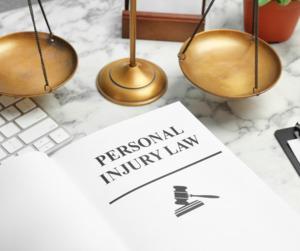Smiles Fool You.
We WIN Legal Fights!

In a state as vast and diverse as Texas, personal injury claims can significantly differ, leading to varied compensation outcomes. Understanding the nuances of Texas personal injury laws and the factors that drive settlements is crucial for those seeking justice and monetary recovery. This article delves into the complexities of personal injury compensation, exploring types of cases, essential statistics for 2025, and the key legal frameworks, including statutes of limitations and damage caps.
Texas’s legal landscape for personal injury claims includes unique rules that dictate how settlements are reached. The intricacies of shared fault and the limits on damages can dramatically influence the compensation victims receive. Special scenarios, such as wrongful death lawsuits or claims against government entities, add further layers of complexity, emphasizing the importance of tailored legal knowledge.
As we explore these factors and their implications, we’ll provide a comprehensive guide to understanding how settlements are determined in Texas. Whether you’re navigating a medical malpractice case or addressing a personal injury involving government liability, knowing these elements can significantly affect the process and outcomes of your claim.
Personal injury claims in Texas arise when someone suffers harm due to another’s negligence. These claims seek compensation for damages like medical bills, lost wages, and emotional distress. The process can be complex, requiring the injured party to prove the other party’s fault. Texas follows a “comparative negligence” rule, which means a plaintiff can still recover damages even if partly at fault, as long as they are less than 51% responsible. It’s crucial for anyone involved in an accident to document all evidence and seek legal guidance. This helps ensure they receive fair compensation.
Personal injury covers a wide range of incidents in Texas. Car accidents are the most common, often involving distracted or impaired drivers. Slip and fall claims arise when someone is injured on unsafe premises, like a wet or uneven floor. Medical malpractice occurs when a healthcare provider fails to provide competent care, leading to patient harm. Workplace accidents, whether due to faulty equipment or lack of training, also fall under this category. Each case type has unique elements, but all require proving the responsible party’s negligence.
In 2025, the landscape of personal injury settlements and verdicts in Texas saw notable trends. The average settlement amount for personal injury cases rose slightly compared to previous years. Car accidents continued to comprise the majority of claims, with many resulting in six-figure settlements. Slip and fall cases often settled out of court, with plaintiffs receiving fair compensation for medical expenses. Under Texas law, cases involving severe injuries or significant negligence from the defendant typically led to higher payouts. These statistics underscore the importance of understanding one’s rights and pursuing a fair outcome.
In Texas, personal injury laws help protect individuals who have been hurt due to someone else’s actions. These laws cover a range of situations, from car accidents to slip and falls. The main aim is to offer compensation to the injured party for medical bills, lost wages, and other damages. Each case is unique, and understanding the legal framework is crucial for victims seeking justice. Knowing the rules and procedures can be overwhelming, but it is essential for safeguarding your rights. Below, we explore some key aspects of personal injury laws in Texas, including time limits for filing a claim, how shared fault affects your case, and limits on damages.
The statute of limitations is the time limit you have to file a personal injury lawsuit in Texas. In most cases, you have two years from the date of the injury to take legal action. This rule ensures that evidence is fresh and witnesses are available. Missing this deadline can mean losing the right to seek compensation. However, there are exceptions. For injuries discovered later, like medical malpractice, the clock might start running from the discovery date, not the injury date. Always check specific timelines with a legal expert. Waiting too long can harm your case, so it’s best to act quickly to protect your rights.
Texas follows a “modified comparative fault” rule in personal injury cases. This means that if you are partly at fault for your injury, your compensation may reduce. Your role in the incident is assessed, and the total damages are adjusted based on that percentage. However, if you are found to be more than 50% at fault, you cannot recover any damages. For example, if you’re 20% at fault in a car crash, you might receive 80% of the damages you claim. This system encourages fairness and discourages negligence. It’s important to know how your actions impact your claim and to present clear evidence to support your case.
Texas law places limits on the amount of damages you can receive in some personal injury cases, especially medical malpractice. These damage caps aim to balance fair compensation and prevent excessive payouts that can strain the system. For non-economic damages like pain and suffering, there is usually a cap. However, economic damages, such as medical bills and lost wages, don’t typically have these restrictions. Understanding these limits is crucial when planning your legal strategy. Knowing what you can realistically recover helps set fair expectations and prepares you for the possible outcomes in your case. Always consult a legal professional to understand how these caps affect your situation.
An experienced personal injury attorney in Harris County, Galveston County, Fort Bend County, Montgomery County, Brazoria County, Houston, Sugar Land, Missouri City, and Stafford, Texas at Thornton Esquire Law Group, PLLC will take over the case from the very beginning and make sure that you receive fair compensation for your injuries. A personal injury lawyer will help you recover medical expenses, lost wages, pain and suffering, and other losses due to the accident. Contact us today at www.thorntonesquirelawgroup.com for a free case evaluation consultation.